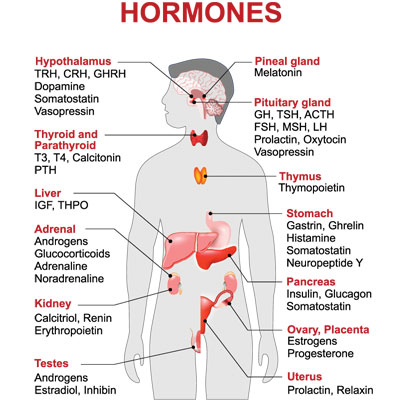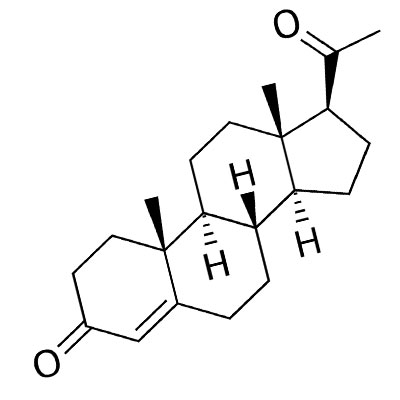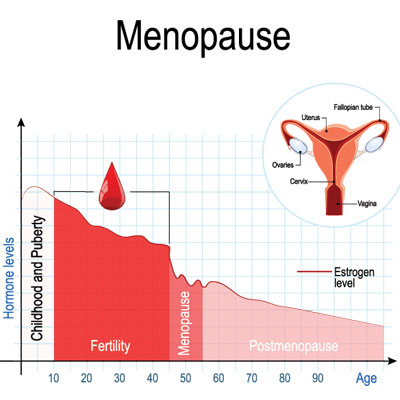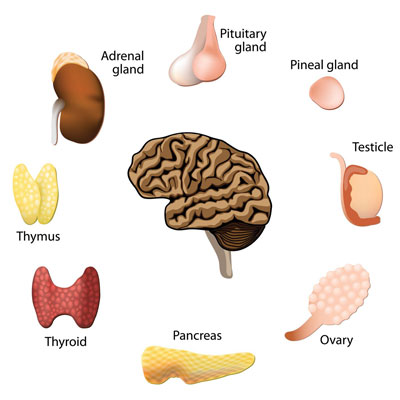Contents
- What Are Bioidentical Hormones?
- What Are Synthetic Hormones
- Risks of Synthetic Hormones
- Bioidentical Hormone Therapy vs. Synthetic Hormone Therapy
- Which Is Better Bioidentical or Synthetic Hormone Therapy?
- How Do I Know Which Bioidentical Hormones Are Right for Me?
- What Do the Medical Studies Say About Bioidentical Hormone Therapy?

What are the differences between the two types, and are bioidentical hormones safer and more effective than synthetic hormones?
What Are Bioidentical Hormones?
Bioidentical hormones have the exact same chemical, physical, and molecular properties as the hormones naturally produced by your body.
Bioidentical hormones are made from natural plant sources by compounding pharmacies. They are not manufactured in pharmaceutical labs like synthetic hormones. There are a few manufactured brands of bioidentical hormones that are approved for use by the FDA. However, most bioidentical hormones are custom-made by compounding pharmacists. Compounding typically involves FDA-approved ingredients being combined or modified to meet the unique symptoms needs of an individual.
Because they are derived from natural sources and are identical to the hormones produced by your body, bioidentical hormone therapy (BHRT) has certain advantages over traditional hormone therapy.
What Are Synthetic Hormones
Synthetic hormones are made in large-scale labs by the big pharmaceutical companies. Synthetic hormones are intentionally “designed” by the pharmaceutical companies to be different than those produced by your body so that they can be patented for profits.
Risks of Synthetic Hormones

Most of the horror stories you have heard about the potential life-threatening side-effects of hormone replacement therapy, particularly the dangers to women — were reported in outdated since disproven studies that all involved synthetic hormones.
In the early years of hormone replacement therapy (HRT), doctors prescribed it almost as a matter of course for any woman entering menopause. However, a decade or so ago, HRT for women became a bit more controversial. This was because many women, and even some doctors, came to believe that it caused an increased risk of breast cancer and heart disease.
This fear was largely created by a study known as the Women’s Health Initiative (WHI). The WHI looked at women who were prescribed HRT for menopause. WHI concluded that there seemed to be a link between HRT and an increased risk of developing breast cancer and/or heart disease.
However, upon more recent analysis, the WHI study has been found to be flawed, and many of its conclusions were wrong. Besides its now many well-documented flaws, WHI ONLY looked at the synthetic hormones. None of the women in the study were using bioidentical hormones.
In the many years since it was published, doctors have learned much more about HRT and, in particular, how to use bioidentical hormones for maximum effectiveness, with minimal risks.
Bioidentical Hormone Therapy vs. Synthetic Hormone Therapy
Bioidentical hormones exactly replicate – molecule for molecule – the hormones that are made by your own body. That means your body cannot distinguish any bioidentical hormones introduced to your bloodstream from the hormones naturally secreted by your body. It reacts to them exactly the same way!
This practically eliminates any possible side effects that normally can occur with synthetic hormones.
As compared to their synthetic counterparts, bioidentical hormones have been found:
- To be more effective
- To be safer and better tolerated
- To produce greater health benefits and positive effects
- To reduce the risk of cancer or heart disease
Which Is Better Bioidentical or Synthetic Hormone Therapy?

Bioidentical hormones are generally regarded as better than synthetic hormones because they are exact duplicates molecular-for-molecule of the hormones they are used to replace.
The synthetic hormones that are made by the big pharmaceutical companies are not the same as the hormones produced by your body. In fact, they are specifically designed to be unique so that drug companies can patent them for bigger profits.
Since bioidentical hormones are exact replicas of your own hormones, they are better recognized and better absorbed by your body. Bioidentical hormones are the safest and most effective type of hormone replacement therapy available.
If you were going to “replace” something, it stands to reason that you would want to replace it with something identical to the original, doesn’t it? If you need to replace the alternator in your Ferrari sports car, you wouldn’t want your mechanic to use one from a Ford Truck, would you? And yet, that is practically what men and women are doing when they accept traditional or synthetic hormone replacement therapies from their doctors.
Bioidentical hormones are given in several ways. In addition to injections, creams, patches, pills, gels, and pellets are among the ways BHRT can be prescribed. Your doctor will determine which delivery method is best for you based on your particular needs and lifestyle.
BHRT can be used to treat men and women when their hormone levels drop or become unbalanced. It’s most frequently used to ease symptoms of perimenopause and menopause in women. However, men who need hormone replacement due to age-related hormone decline can also benefit from BHRT.
How Do I Know Which Bioidentical Hormones Are Right for Me?
Which bioidentical hormones you are prescribed depends on how old you are, if you are a man or a woman, of course, how you are feeling, and what problems you are experiencing.
You may need a prescription for bioidentical progesterone, estrogen, testosterone, thyroid hormones, growth hormone, or any combination thereof.
If you are between the ages of 35-55, look for these signs and symptoms of your hormone levels being low or out of balance:
- Weakness and fatigue
- Depression and mood swings
- Weight gain
- Loss of muscle tone
- Insomnia and/or disturbed sleep patterns
- Night sweats (women)
- Hot flashes (women)
- Erectile Dysfunction (men)
See your doctor if you are experiencing the signs above. The only way to know if you qualify for bioidentical hormone therapy is through a series of specific diagnostic tests.
What Do the Medical Studies Say About Bioidentical Hormone Therapy?
Research has shown that bioidentical hormone therapy has several advantages over conventional hormone therapy.
A Trusted sourceA comprehensive review of the safety and efficacy of bioidentical hormones for the management of menopause and related health risksPubMedGo to source2006 meta-analysis (study of studies) that took a comprehensive look at the relative advantages of bioidentical hormones vs. synthetic hormones for the treatment of menopausal symptoms concluded, “Studies of both bioidentical estrogens and progesterone suggest a reduced risk of blood clots compared to non-bioidentical preparations. Bioidentical hormone preparations have demonstrated effectiveness in addressing menopausal symptoms. The author(s) advocates for continued research on bioidentical hormones and concludes there is currently sufficient evidence to support their preferred use over that of their synthetic cousins.”
A similar study Trusted sourceThe bioidentical hormone debate: are bioidentical hormones (estradiol, estriol, and progesterone) safer or more efficacious than commonly used synthetic versions in hormone replacement therapy?PubMedGo to sourcepublished in 2009 in the medical journal Postgraduate Medicine concluded, “Patients report greater satisfaction with HRTs that contain bioidentical progesterone compared with those that contain a synthetic progestin. Physiological data and clinical outcomes demonstrate that bioidentical hormones are associated with lower risks, including the risk of breast cancer and cardiovascular disease, and are more efficacious than their synthetic and animal-derived counterparts. Until evidence is found to the contrary, bioidentical hormones remain the preferred method of HRT.”
Similar findings were also published in a Trusted sourceCould transdermal estradiol + progesterone be a safer postmenopausal HRT?PubMedGo to source2008 study which concluded, “…evidence indeed shows that [BHRT] displays a favorable action on the vessels and on the brain, while this might not be true for some synthetic progestins. Compelling indications also exist that differences might also be present for the risk of developing breast cancer, with recent trials indicating that the association of natural progesterone with estrogens confers less or even no risk of breast cancer as opposed to the use of other synthetic progestins.”
Now that you know a lot more about the differences between bioidentical and synthetic hormones, why not contact us today and find out more about the many life-changing benefits of hormone replacement therapies for treating men and women with age-related hormone loss?
FAQ
1. Is Bioidentical Hormone Therapy Safe?
Bioidentical hormone therapy is very safe. It is probably the safest form of hormone replacement therapy available. Bioidentical hormone therapy (BHRT) uses the same hormones, molecule-for-molecule, as the ones which occur naturally in your body, including progesterone, estrogen, and testosterone. Bioidentical hormones are made from all-natural plant sources to create hormones that are exact duplicates of human hormones. Bioidentical hormones are better recognized by the hormone receptors in your body and are therefore more effective and better tolerated than their synthetic counterparts.
2. What Can Bioidentical Hormone Replacement Therapy Do for Me?
As both men and women age, our bodies produce less and less of several critical hormones. The most significant decline is of the so-called "sex hormones" estrogen, progesterone, and testosterone. As these levels drop, women go through the commonly recognized symptoms of menopause -- hot flashes, night sweats, mood swings, low libido, and other sexual wellness issues. Men will also experience sexual health issues, mood swings, and other negative health impacts of age-related testosterone loss.
Bioidentical hormone replacement can make up for what time and nature takes away and alleviate all of these symptoms and more.
3. How Soon Can I Expect to See Results From Bioidentical Hormone Therapy?
Results vary from person to person and from men to women. Some patients report almost immediate results, feeling noticeably better in just a few days. For most patients, however, bioidentical hormone therapy takes about 3-6 months to restore your hormones to their optimal balance.
After your first six-month course of bioidentical hormone injections, your symptoms and hormone levels will be evaluated to see if you need to continue hormone therapy.
4. How Long Will I Have to Be on Bioidentical Hormone Therapy?
That also depends a lot on your individual needs and lifestyle. The answer depends as much on how well your body responds to bioidentical hormone replacement as it does to your diet, overall fitness level, sleep habits, etc. We tailor our programs to your particular needs and lifestyle and monitor you throughout the process to ensure you are on the program that is right for you.
5. Are There Any Side Effects of Bioidentical Hormone Therapy?
Despite what you may have heard about the side effects of hormone replacement therapy, very few people experience negative side effects, particularly when using bioidentical hormones. The supposed links between HRT and serious side effects such as breast or prostate cancer, heart disease, and blood clots have all been recently disproven.
6. Do I Need a Doctor’s Prescription for Bioidentical Hormone Therapy?
Absolutely! And that is part of what makes it so safe. Your physician will prescribe the right course and dosage of bioidentical hormone therapy specifically for you, which will then be custom-made by the compounding pharmacy. Your doctor can modify or change your dosage over the course of your treatment as needed, which is again one of the advantages of compounding and BHRT.
7. What is a compounding pharmacist?
Unlike the mass-produced drugs and medicinal treatments made by the big pharmaceutical giants, a compounding pharmacist prepares prescriptions that are custom-made for the individual needs of each patient.
8. At What Age Should I Start Bioidentical Hormone Therapy?
Generally speaking, your body's key hormone levels start to drop after your mid-20s, and the symptoms of age-related hormone decline can begin as early as your mid-30s. In general, most men and women start BHRT between the age of 35 and 40, but it is less about your age than it is about how you feel. If you are feeling moody, stressed, tired, gaining weight, and/or experiencing sexual wellness issues, don't wait -- see your doctor and find out if you may be a candidate for bioidentical hormone therapy.






